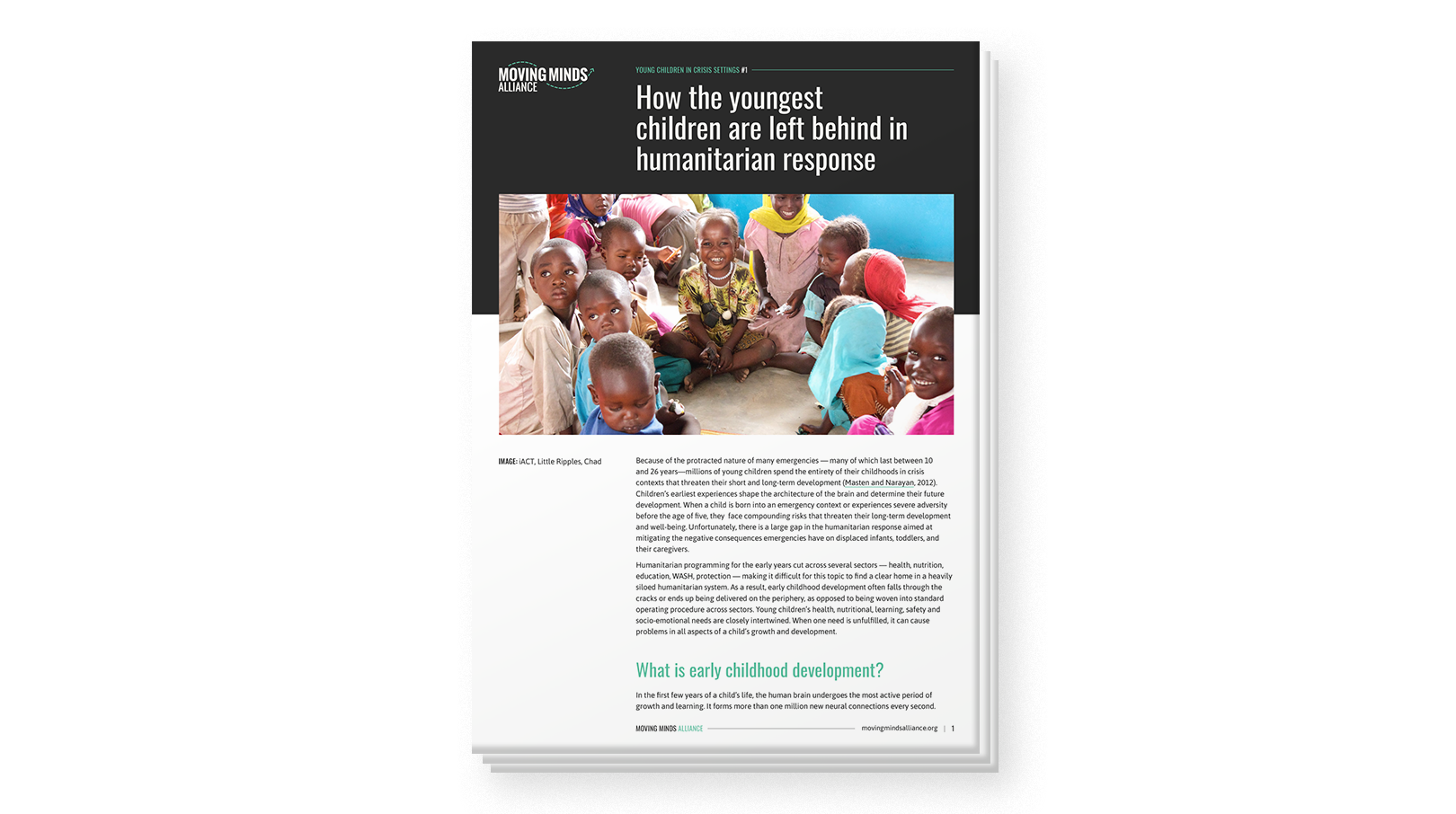When a child is born into an emergency context or experiences severe adversity before the age of five, they face compounding risks that threaten their long-term development and well-being. These seven policy briefs explore early childhood development and why is it important to understand specially in crisis contexts.
1. How the youngest children are left behind in humanitarian response
This policy brief defines early childhood development and why is it important to understand specially in crisis contexts. It explains the Nurturing care framework and how to use it to mitigate risks for young children in crisis settings and supporting them to have a healthy development.
2. The developing brain in crisis contexts
As Harvard University’s Center on the Developing Child explains, brains are built over time. This policy brief explores how our brain responds to stress. It talks about the threats of young children in crisis being exposed to pro-longed stress and adversities and how to best mitigate the impact on their brain development.
3. Nourish the body, nourish the bond: integrating early care and nutrition in emergencies
In the earliest years of life, children depend on the adults around them not only to keep them healthy, fed, safe and active, but to also show them how to interact with others and the world around them. This brief focuses on integrating early childhood development in emergencies within nutrition sector response plans and programs. It shares evidence from various contexts of the positive effects that integration of ECDIE and nutrition has on both children and their caregivers.
4. How early childhood development in emergencies promotes gender equality
Gender and early childhood development (ECD) go hand-in-hand in times of crisis. This brief explains how early childhood development contributes to Gender equality, focusing on how ECD services prevent gender based violence in emergencies and how it closes the gender gap in parental care.
5. Born Learning: Expanding learning opportunities for the youngest children in crisis settings
From the moment an infant takes their first breath, they are learning, exploring and growing. This fifth policy brief explains the importance of supporting the youngest children in crisis to access high quality early learning programs. It explores some of the protective and risk factors for children under 5 that could affect their brain’s development and highlights how the early learning needs for children in crisis are yet to be met by our humanitarian system.
6. Why supporting caregivers’ mental health in crisis settings is essential for young children’s holistic development.
Investment in multi-sectoral programming, that promotes and protects the mental health and psychosocial wellbeing of caregivers and their children, is essential in crisis settings but is rarely prioritised. This brief focuses on why caregivers’ mental health matters and why it is critical to invest in and prioritize caregivers’ well-being and support in conflict and crisis-affected areas.
7. Child protection for the youngest children affected by emergencies
Millions of children born and raised in humanitarian settings experience specific threats to their wellbeing and development, such as separation from parents and caregivers, exposure to violence in the community and family and dangers and hazards that result in injury and distress. This seventh policy brief highlights how child protection is critical to preventing lifelong consequences for young children exposed to violence and trauma during emergencies.

